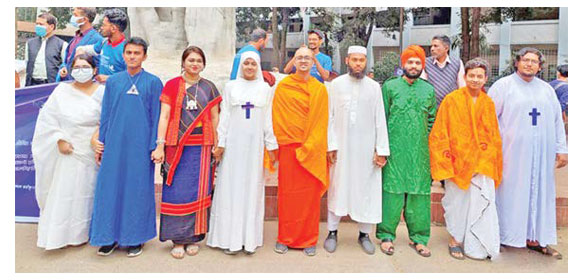Prophet Muhammad’s holistic ideals for building an inclusive society
Published: 18 Sep 2025

Wares Ali Khan
The life of Prophet Muhammad (PBUH) presents a best example of an enlightened leadership. He believed in inclusivity, quality and human dignity. He formed a society where there was independence and honour for all. Diverse groups could coexist peacefully and cooperatively in that society. The prophet (PBUH) was a bold yet gentle, pleasant and just person. His inclusivity was not a matter of political convenience but a core tenet of his message. The Charter of Madina, a document created under his guidance, guaranteed the rights and freedoms of all communities in society, regardless of their faiths. His leadership was a practical demonstration of the Quranic principle: “O mankind, indeed We have created you from male and female and made you peoples and tribes that you may know one another. Indeed, the most noble of you in the sight of Allah is the most righteous of you” (Al-Huzrat: 13)
His commitment to equality was equally profound. In his final sermon, he unequivocally declared, “An Arab has no superiority over a non-Arab, nor a non-Arab has any superiority over an Arab; a white person has no superiority over a black person, nor a black person has any superiority over a white person except by piety and good action.” This was a revolutionary declaration in a world gripped in the darkness of prejudice and tribalism. He was a leader who shared the hardships of his people. He was such a humble Servant of Allah that would mend his own shoes and help with household chores, exemplifying a life of true greatness.

The Prophet’s governance incorporated democratic values. He consistently practiced Shura, or mutual consultation, in matters of state, believing in the collective wisdom of the community. This was a clear departure from the autocratic norms of his time and a powerful endorsement of participatory governance. His unwavering insistence on justice is repeatedly emphasised in the Quran: “O you who have believed, be persistently standing firm in justice, witnesses for Allah, even if it be against yourselves or parents and relatives” (An-Nisa:135). He established a state where the rule of law was supreme and every individual, including himself, was subject to it.
It is seen that his followers often fall short of emulating these excellent ideals. One of the significant deviations has been the entanglement with an “imperialistic fantasy.” The early expansion of the Muslim world, a complex historical phenomenon, has at times been romanticised into a narrative of conquest rather than a struggle for justice and the establishment of a more equitable society. This has sometimes led to a triumphalism that is at odds with the Prophet’s own humility and his emphasis on winning hearts through compassion and reason. The holy Quran itself presents a remainder in this connection: “Invite to the way of your Lord with wisdom and good instruction, and argue with them in a way that is best” (An-Nahal: 125).
Compounding this is the prevalence of “shallow thought”—a move away from the intellectual dynamism and critical thinking that the holy Quran and the Prophet (PBUH) so strongly encouraged. The Quran is replete with verses that urge believers to reflect, to ponder and to use their reason. The Prophet himself said, “Seeking knowledge is an obligation upon every Muslim.” Yet, in many parts of the Muslim world, a culture of blind imitation (Taqlid) has taken root, discouraging independent reasoning (Ijtihad) and leading to intellectual stagnation. This has made it difficult to apply the timeless principles of Islam to the complex challenges of the modern world in a meaningful and relevant way.
To reclaim the success attained by the Prophet, we must re-centre our understanding of Islam on its core ethical and moral values. This means prioritising the Prophet’s (PBUH) emphasis on justice, compassion, equality, freedom and inclusivity.
We have to revive the spirit of critical thinking and intellectual inquiry. The doors of ijtihad (reasoning by an expert) must be kept reopen, and Muslims must be encouraged to engage in the study of the Quran and the Sunnah. We need to foster an environment where diverse interpretations can be respectfully debated.
Believers must actively challenge the narratives that promote division and intolerance. Lessons must be taken from the Prophet’s (PBUH) examples of building bridges with other communities. We need to foster interfaith dialogue and cooperation, recognising our shared humanity.
Besides, we must embody the Prophet’s (PBUH) humility and commitment to service. True leadership, as he demonstrated, is not about power and privilege, but about serving the needs of the people. This requires a sincere effort to combat corruption, promote good governance, and work for the betterment of societies entirely.
The holy Quran reminds us that “Indeed, Allah will not change the condition of a people until they change what is in themselves” (Ar-Ra’ad:11). The path to reclaiming the legacy of the Prophet (PBUH) requires courage, intellectual honesty and a deep commitment to the values of justice, equality, freedom and human dignity that he so beautifully exemplified.
_____________________________________________________
The writer is an academic and edupreneur. He can be reached at [email protected]

